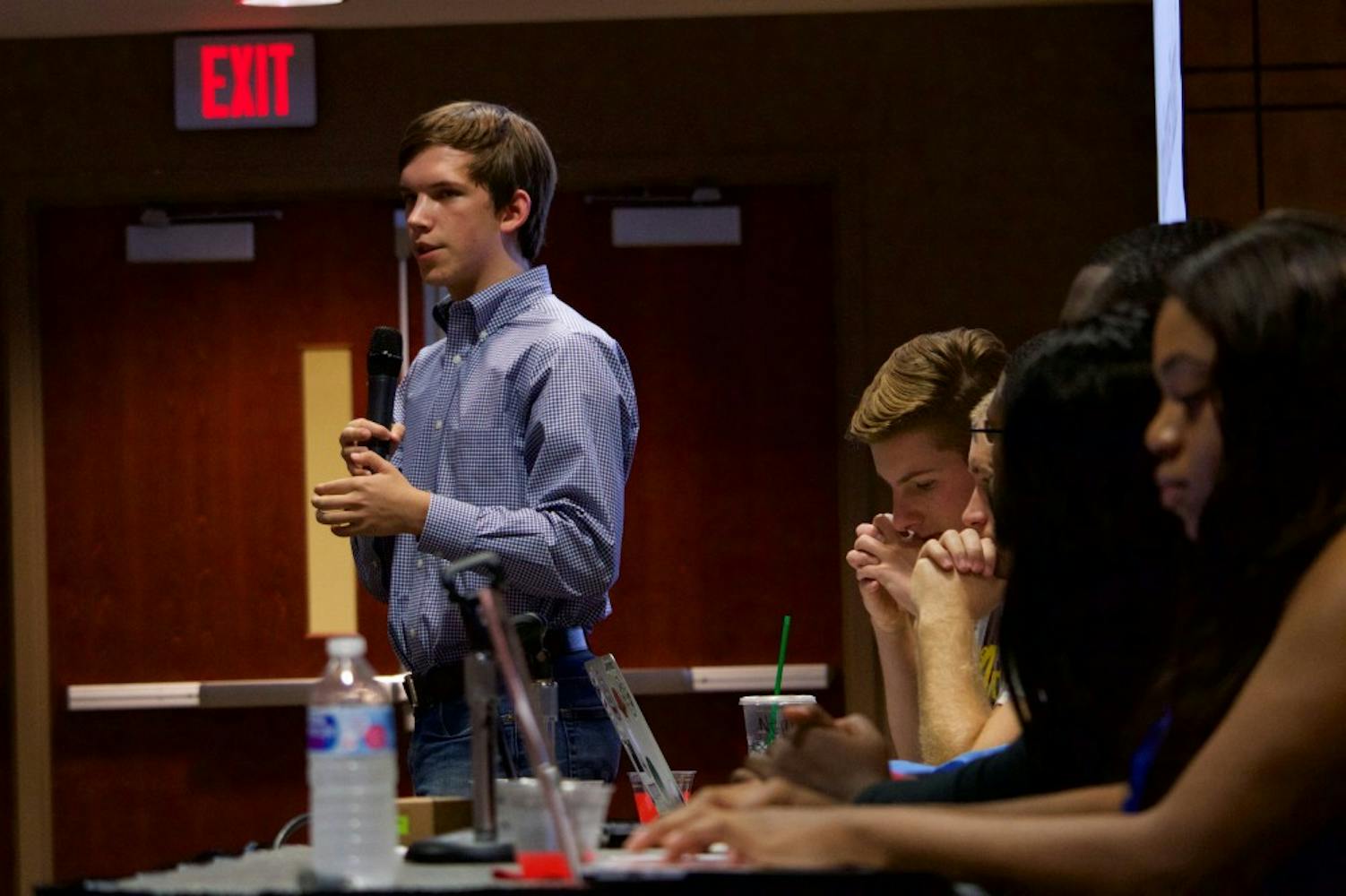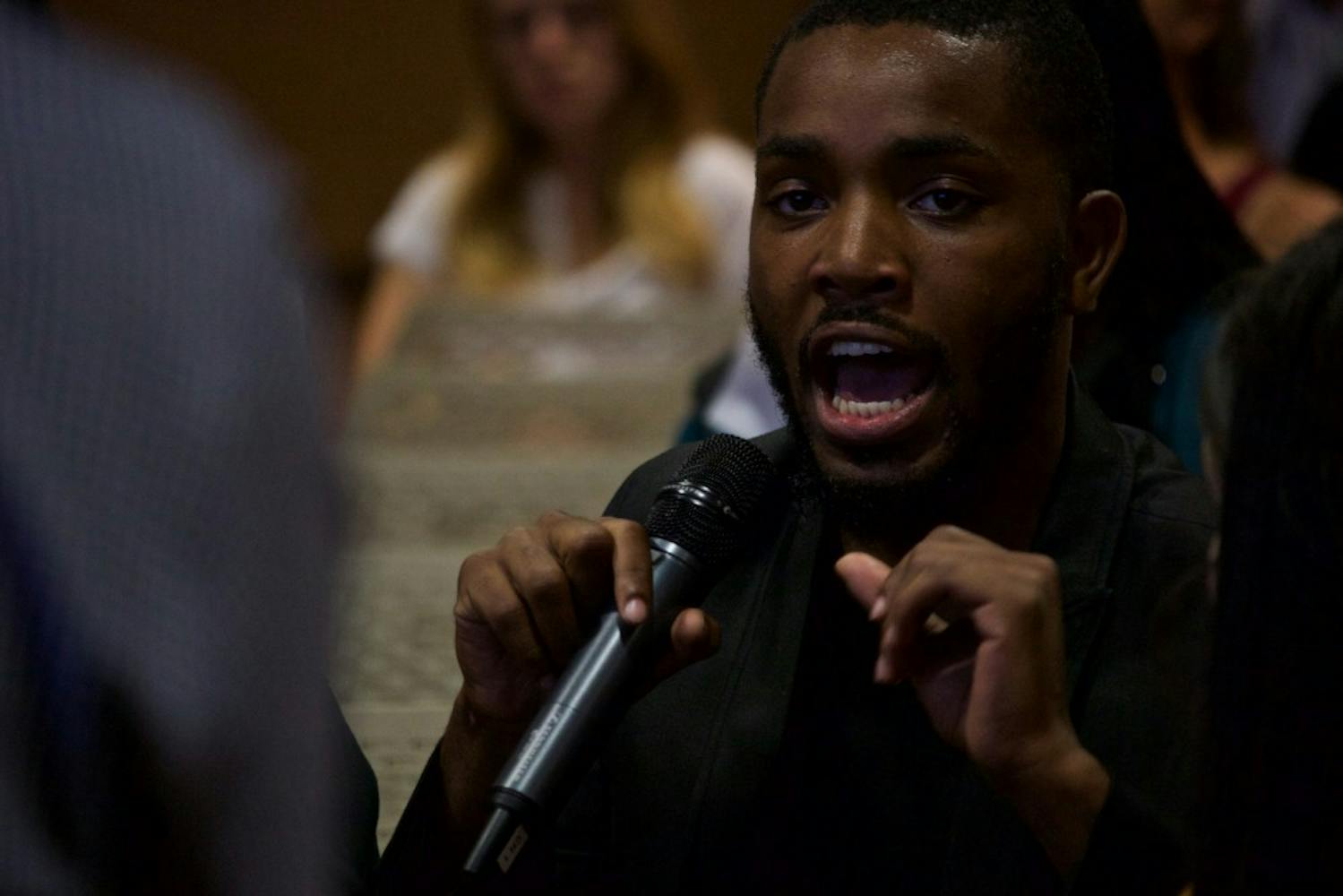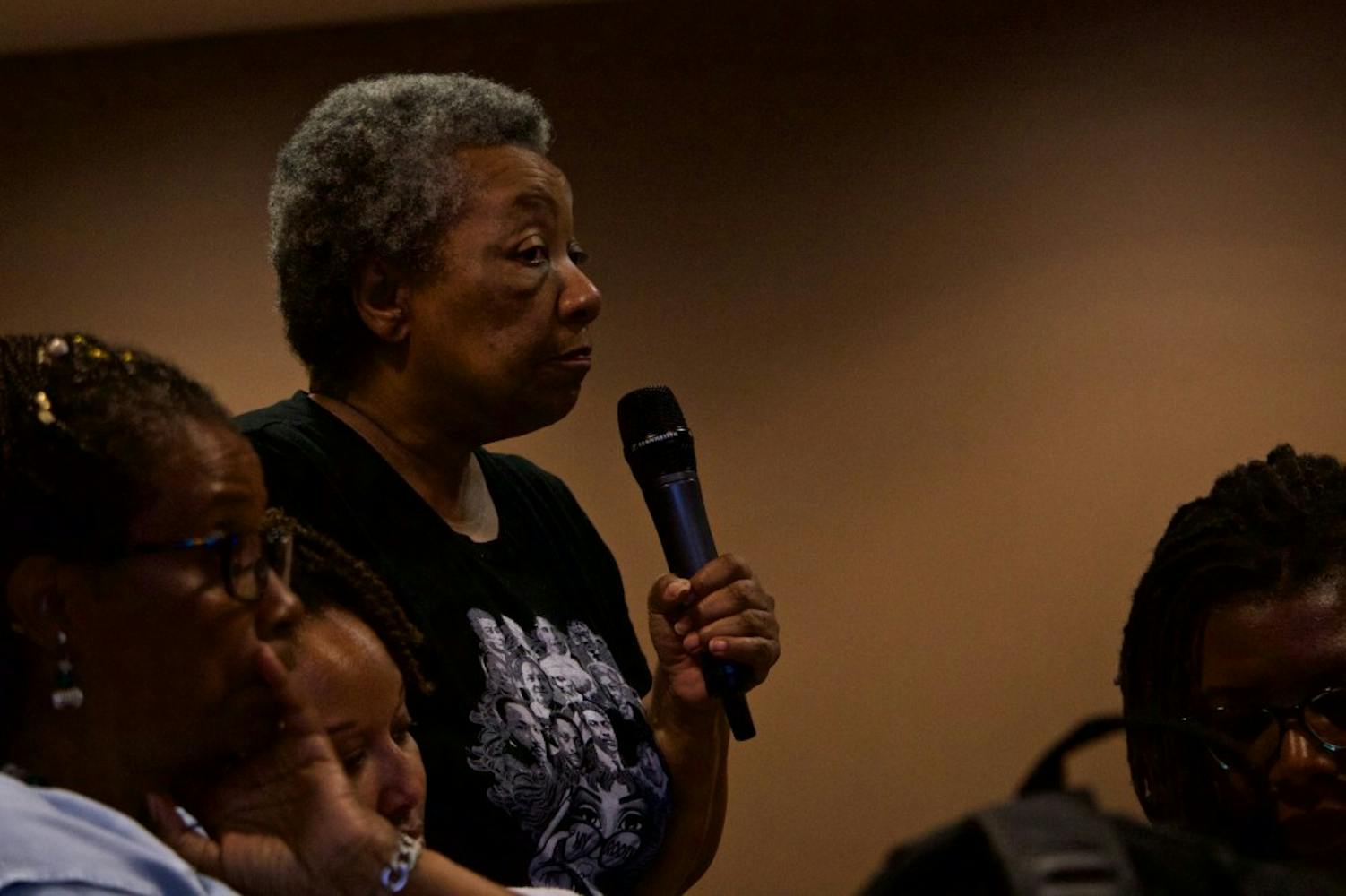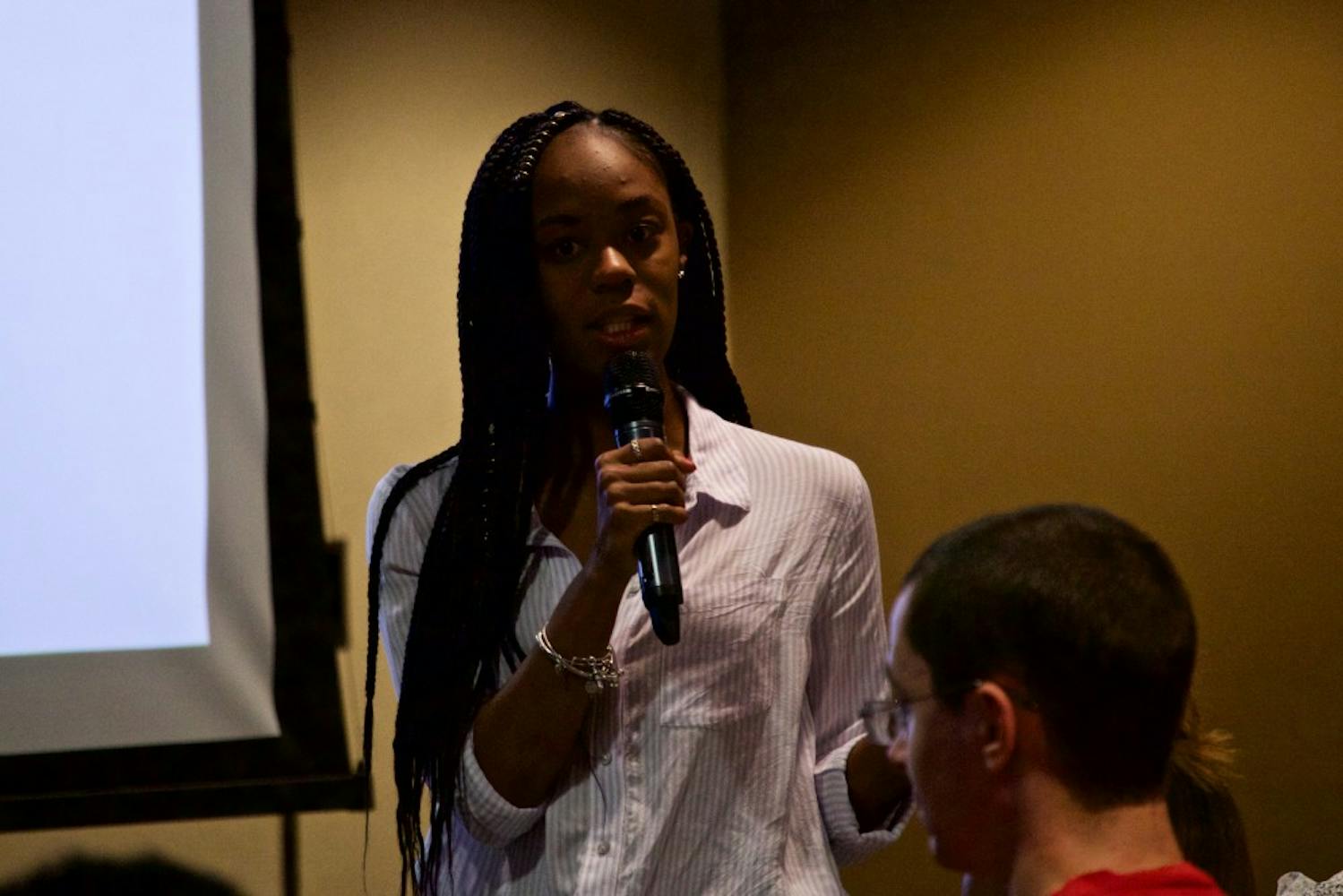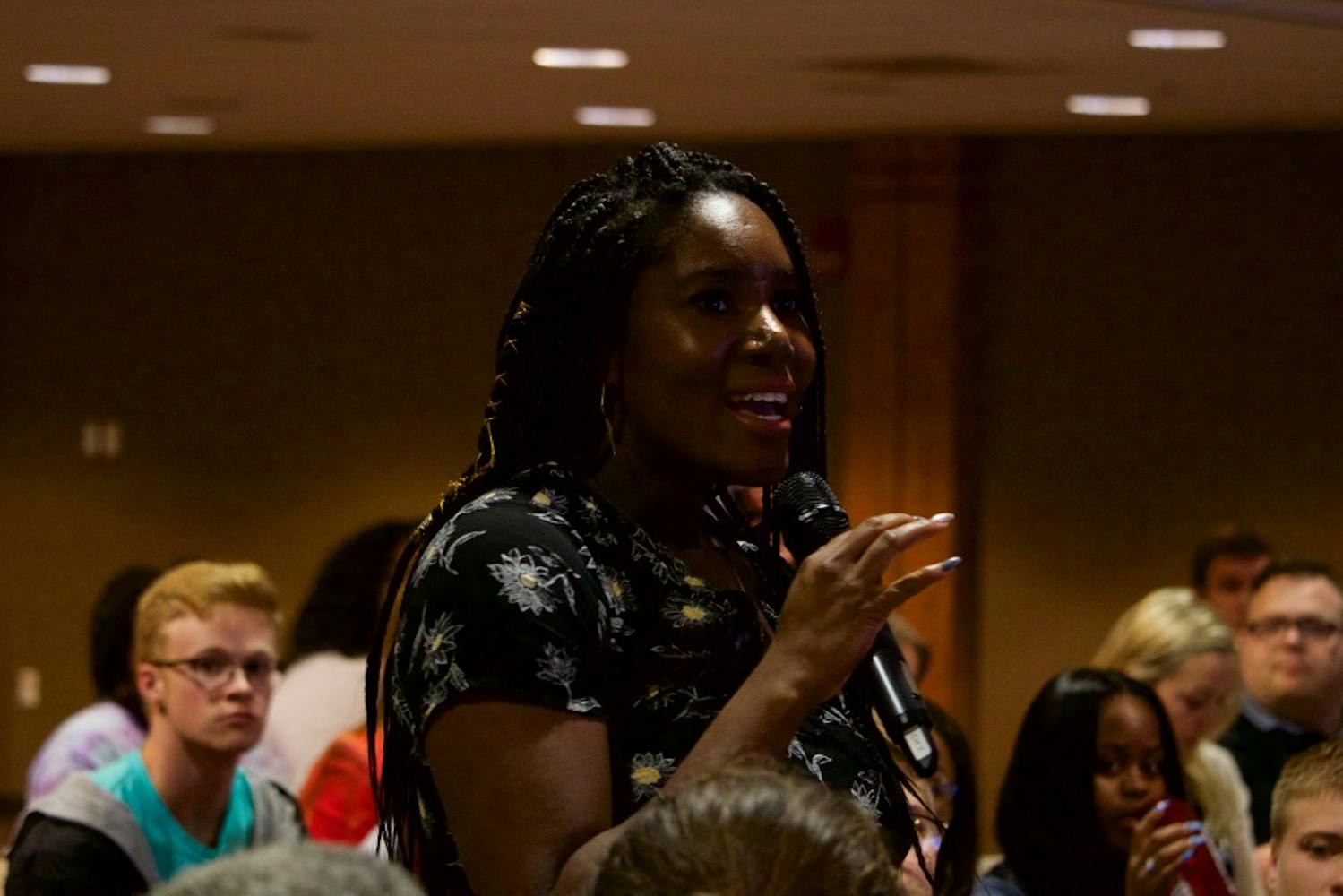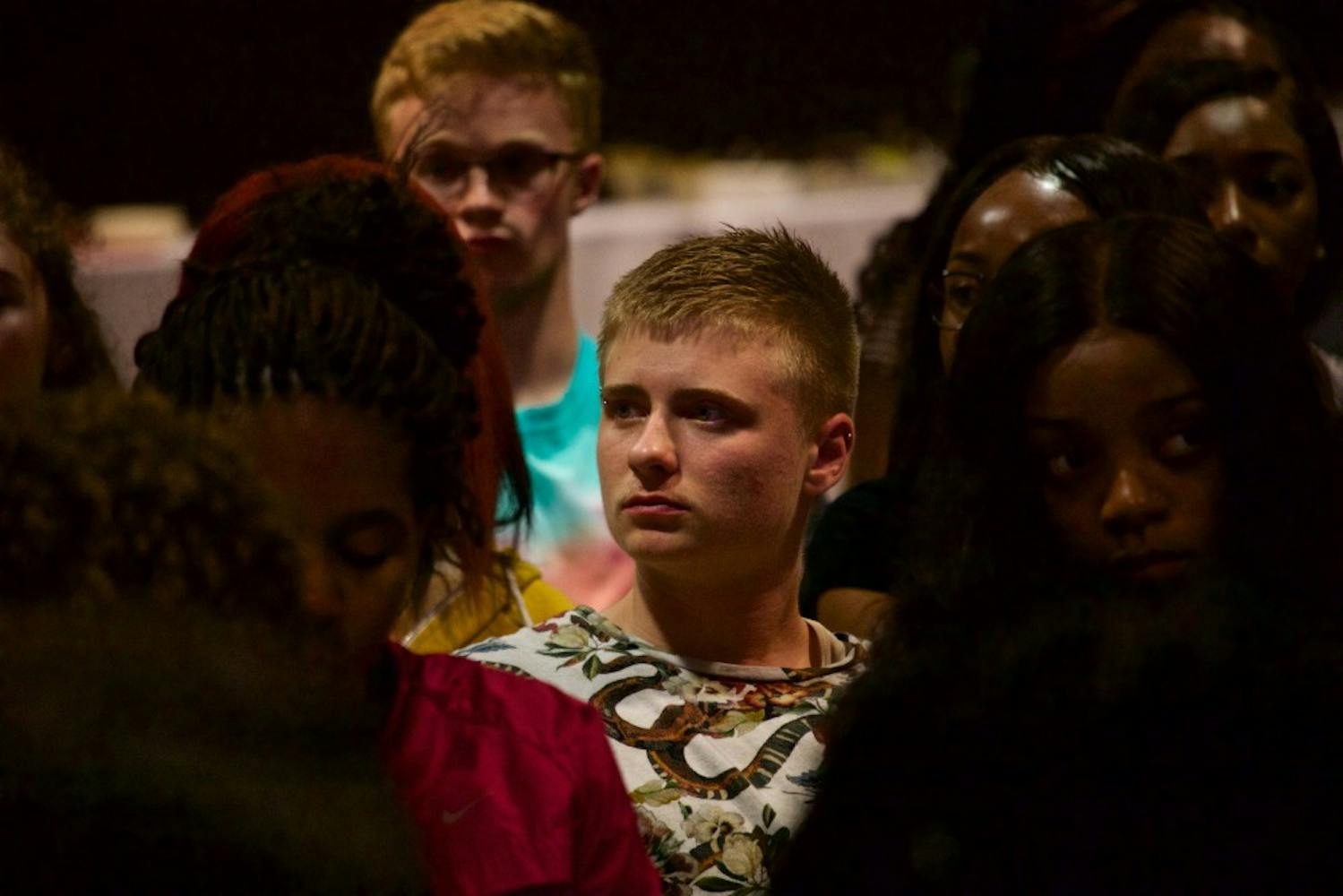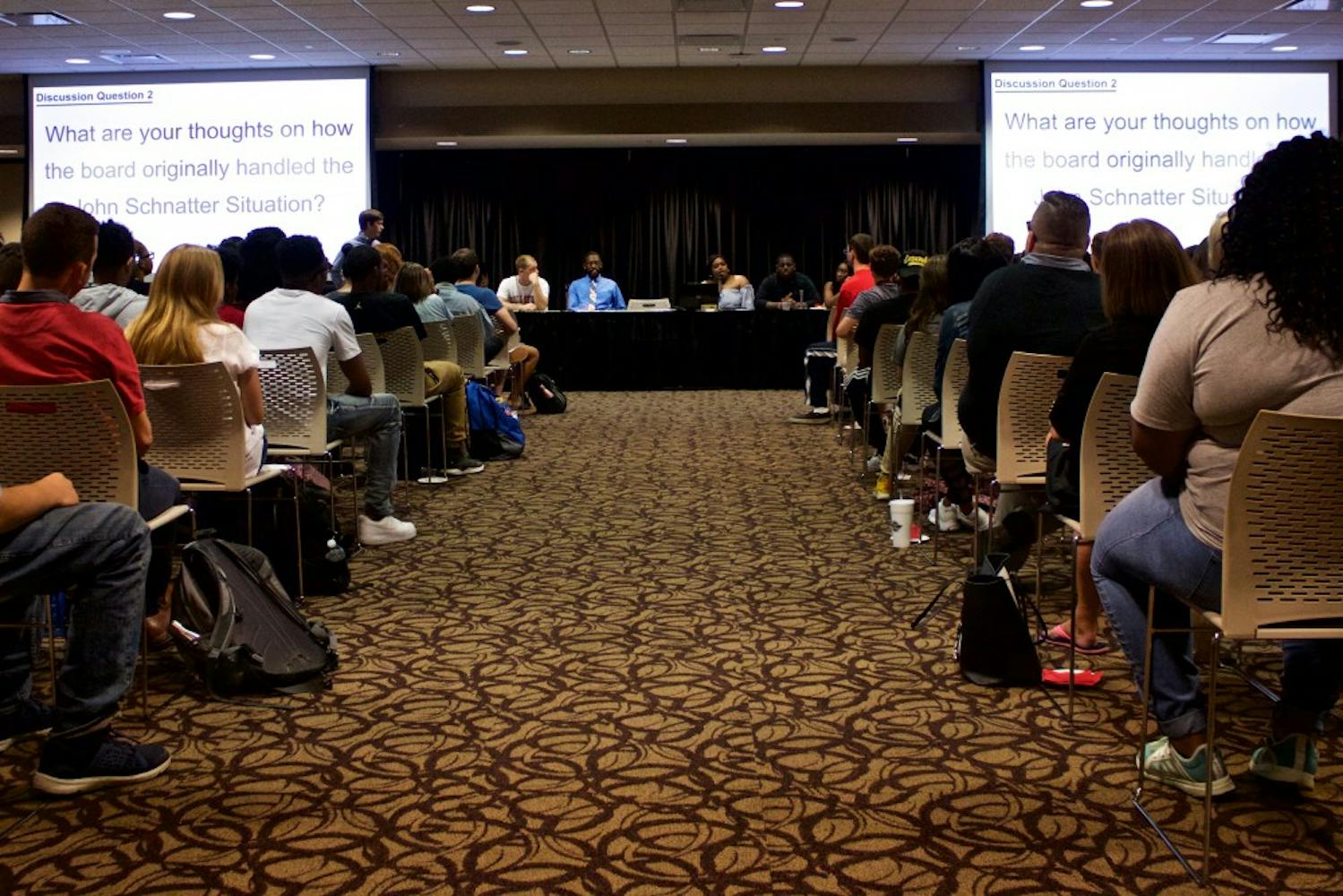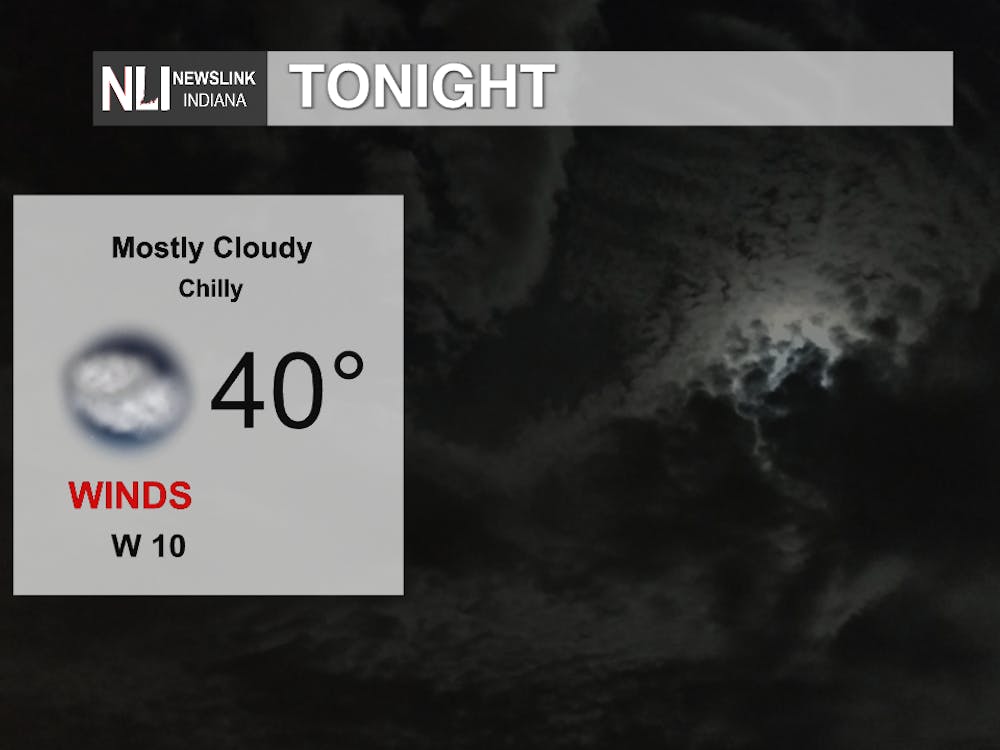Editor's note: A previous version of this story reported the board voted to revoke Schnatter's honorary degree. However, during the meeting the board removed Schnatter's distinguished professorship. This story has since been edited to reflect the change.
"We want you to be comfortable here. We want you to feel included here," Yvonne Thompson, director of the Muncie Human Rights Office, said to a room full of students in Cardinal Hall.
In wake of the Ball State Board of Trustees reversing its decision to remove John Schnatter’s name from the university, Student Government Association (SGA) and Black Student Association (BSA) hosted “Hear Our Stories: A Student Forum” Tuesday evening.
SGA President Isaac Mitchell and BSA treasurer Avery Haynes, moderated the conversation while students shared their opinions, answering questions like: “What are your thoughts on the use of the N-word generally,” “As far as the African American Community itself, does this make you rethink the way we reuse the N-word,” “What are your thoughts on how the board originally handled the John Schnatter situation,” “How do you guys feel about President Mearns’ statement,” “How do we all feel after the new statement,” “How do we feel about Ball State’s efforts to be a diverse and inclusive environment” and “How do we move forward as a community?”
Moving forward
One-by-one, students were handed microphones to share their opinions on Schnatter, the Board, President Geoffrey Mearns and what the community can do to move forward.
KeAyra Williams, BSA president, presented the audience with a list of actions the university could take to show support for the students in wake of the Schnatter decision.
“How can we move forward despite this situation? Not only through the John Schnatter situation, but expanding on this situation because there’s a deeper issue beyond the John Schnatter, it’s really: How did we come to this situation in the first place to keep associating with him? So, we realize that there are some things that we can really come up with collectively that can help move our university forward.”
The list included three main phases, including a symbolic justice phase and two restorative justice phases. Each phase listed five steps the university or Schnatter could take to support minority students on campus.
Out of each list, the symbolic justice list has the most items completed, including removing Schnatter’s name from the Institute of Entrepreneurship and Free Enterprise and returning Schnatter’s funds. During the Ball State Board of Trustees meeting Thursday, the board voted 8-1 to take the previously mentioned actions.
The list also includes Schnatter delivering an in-person, open and honest apology to students, removing Papa John’s Pizza from the Atrium and revoking Schnatter’s honorary degree, both of which the university doesn’t plan on doing.
“We will not be closing the Papa John’s operation on campus. Papa John’s Pizza - the corporation - has made significant corporate changes in the wake of circumstances surrounding John Schnatter’s statement. We do not want to further economically impact workers who are part of local franchises,” university spokesperson Marc Ransford said.
Julie Hopwood, associate vice president for business and auxiliary services, said in an email through Ransford the university, per the request of Papa John’s International Inc. on July 25, removed branding from pizza and breadstick boxes and menu boards prior to reopening Aug. 15.
Similar to BSA’s original statement following the board’s initial response on Aug. 3, the Restorative Justice Phase I suggests Schnatter should donate money to university’s new Multicultural Center.
However, many in the audience disagreed, saying having Schnatter donate money toward the facility would be contradictory.
“I think that Ball State is doing just enough to stay level. They’re doing just enough. They can say we have a Multicultural Center, but no one's going to look it up and see what it looks like. They can say we have diversity, have this percentage of students of color, but are we intermingling? Are we getting to know each other? It’s just enough to save face, it’s just enough to look OK,” said a 4-year Multicultural Center employee.
Student opinions
During most of the forum, students shared their opinions on the Schnatter situation at the university level. Students cited the board’s decision to rescind its original statement as disingenuous because of the emailed statement's tone.
However, students like Residence Hall Association President Kathy Berryhill showed support for President Mearns following the Board's statement.
“Initially, I wasn’t surprised by the board’s statement. I was incredibly disappointed because we boast about Beneficence and diversity and inclusion and it just reiterated a lot of other experiences that I’ve had on this campus that I still, for some odd reason, call home,” Berryhill said. “I wasn’t surprised, as I said. When Mearns issued his statement, however, it felt like he was a man who was backed into a corner because the Board is, they’re his bosses, so it felt like he wanted to say that he disagreed, but he couldn’t because they were the ones that could fire him initially.”
Additionally, Berryhill mentioned the removal of Schnatter’s name from the university was Mearns’ idea.
“I think Mearns was deeply disappointed in the university as well because every time I’ve chatted with him about what he feels at Ball State, he says he wants to make it a home and he says that he wants all of his students to feel welcome,” she said.
Though students were the primary source of opinions during the forum, administrators Associate Vice President for Student Affairs and Enrollment Services Ro Ann Royer Engle and Vice President of Student Affairs and Enrollment Services Kay Bales also attended the meeting.
“We really came out to listen and hear what particularly students had to share, and we, I think, always feel grateful and empowered when students share with us what they’re thinking, but moreover, I think it was really important to listen to the students talk about the actions they can take,” Bales said.
In an interview prior to the forum, SGA President Mitchell told The Daily News he wasn’t sure how many people would be present, but the room had accommodative seating for up to 200 people, which would’ve been “ideal,” he said.
Around 15 community members and 137 students showed up to the forum Thursday night.
“I think what we have to do moving forward is be proactive. So, from today and tomorrow and all the next days, even when there’s not a bigger, popular issue that’s making headlines, all of us that are in this room need to keep caring about this,” Mitchell said.
Following the forum, Mitchell said he plans to compile everyone’s statement and set up a meeting with administrators.
Contact Mary Freda with comments at mafreda@bsu.edu or on Twitter @Mary_Freda1.

